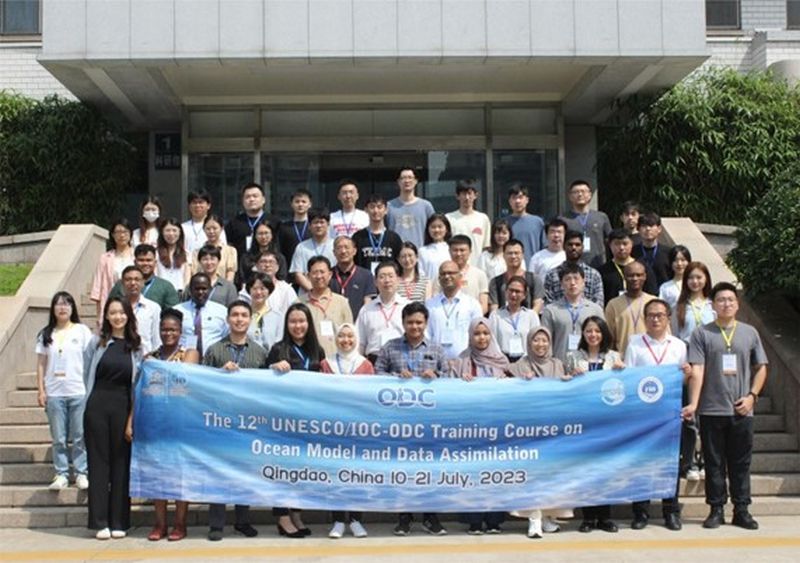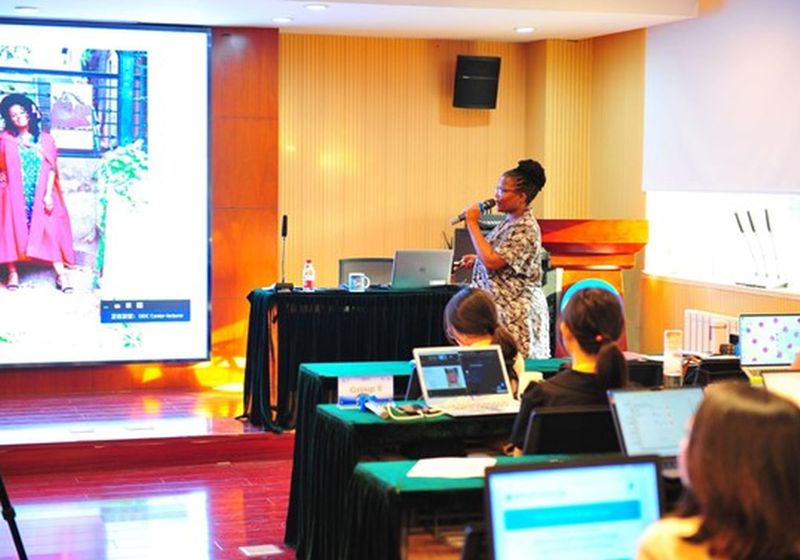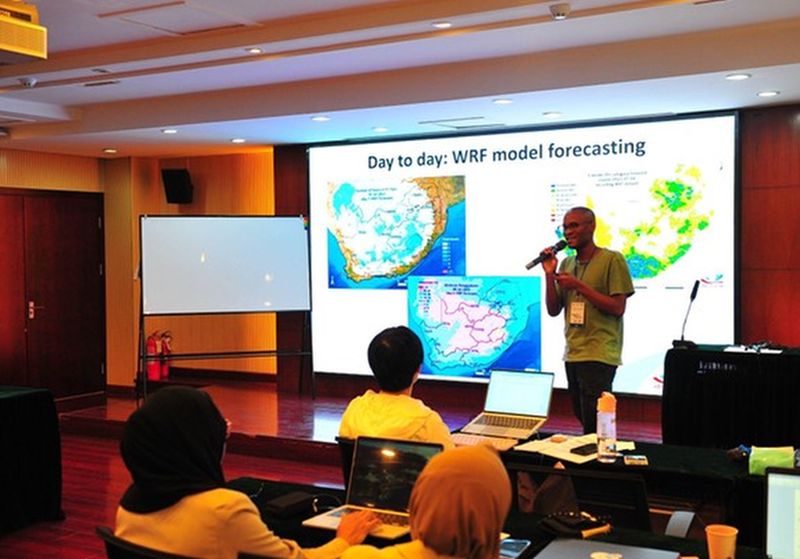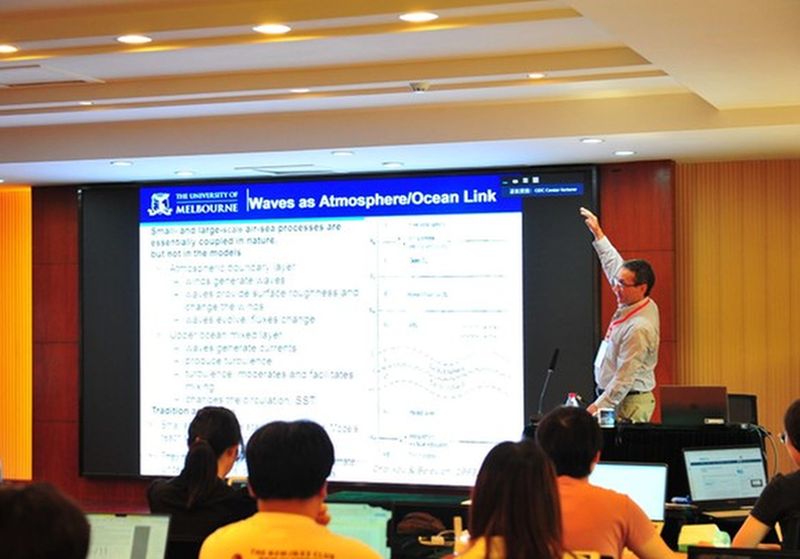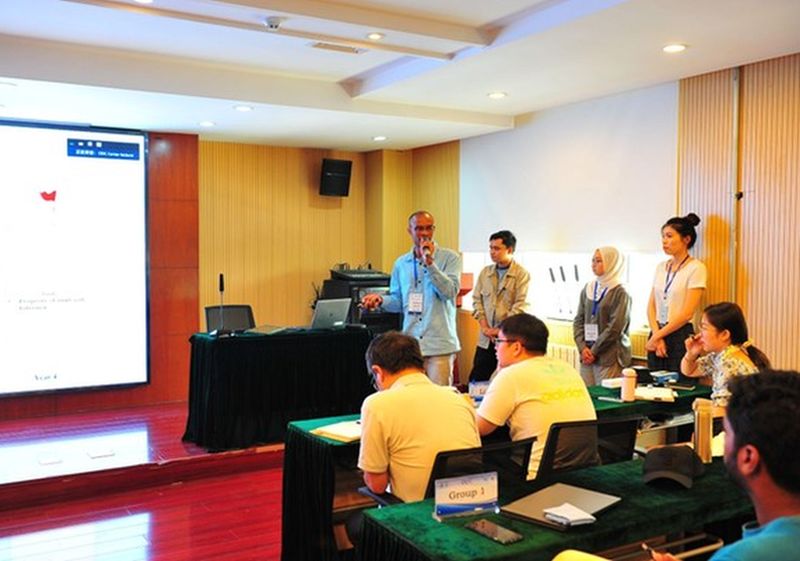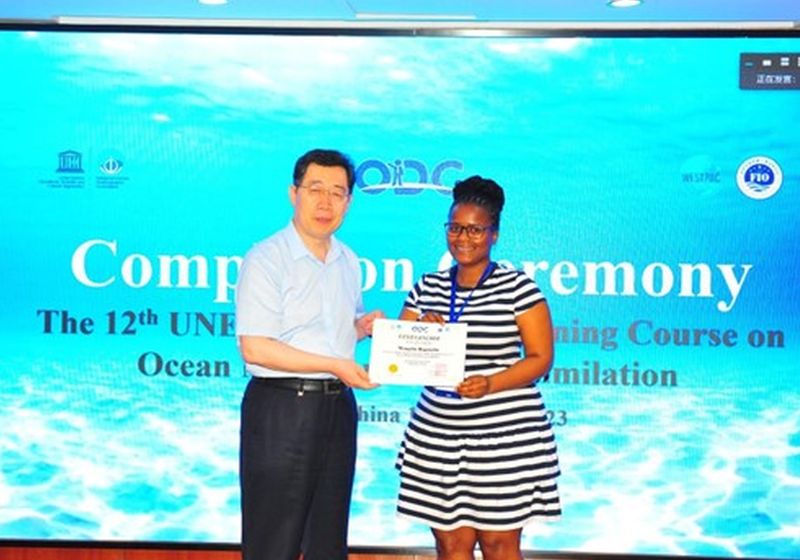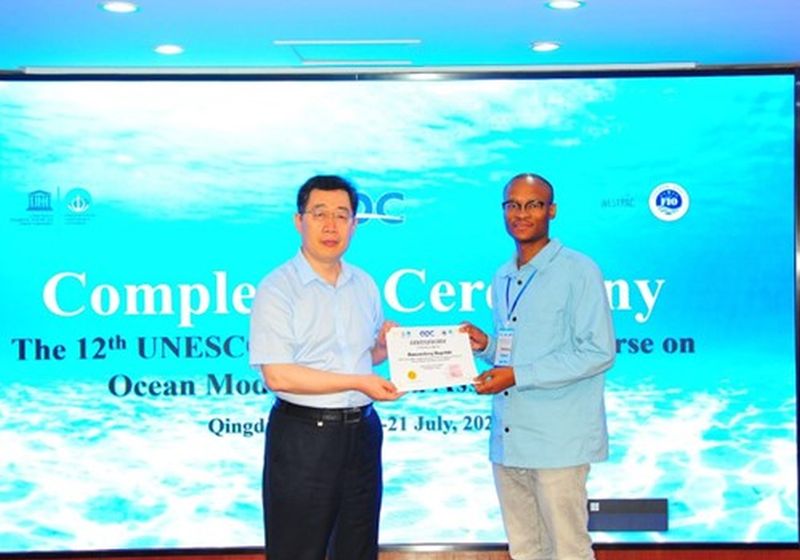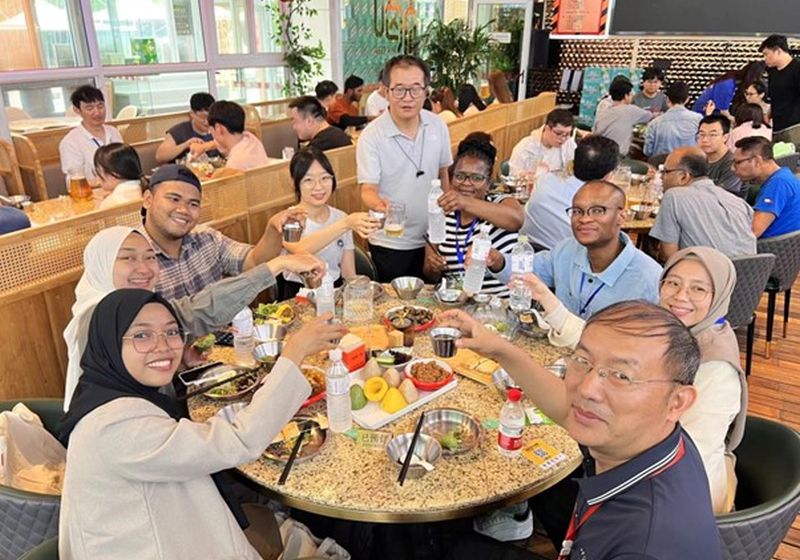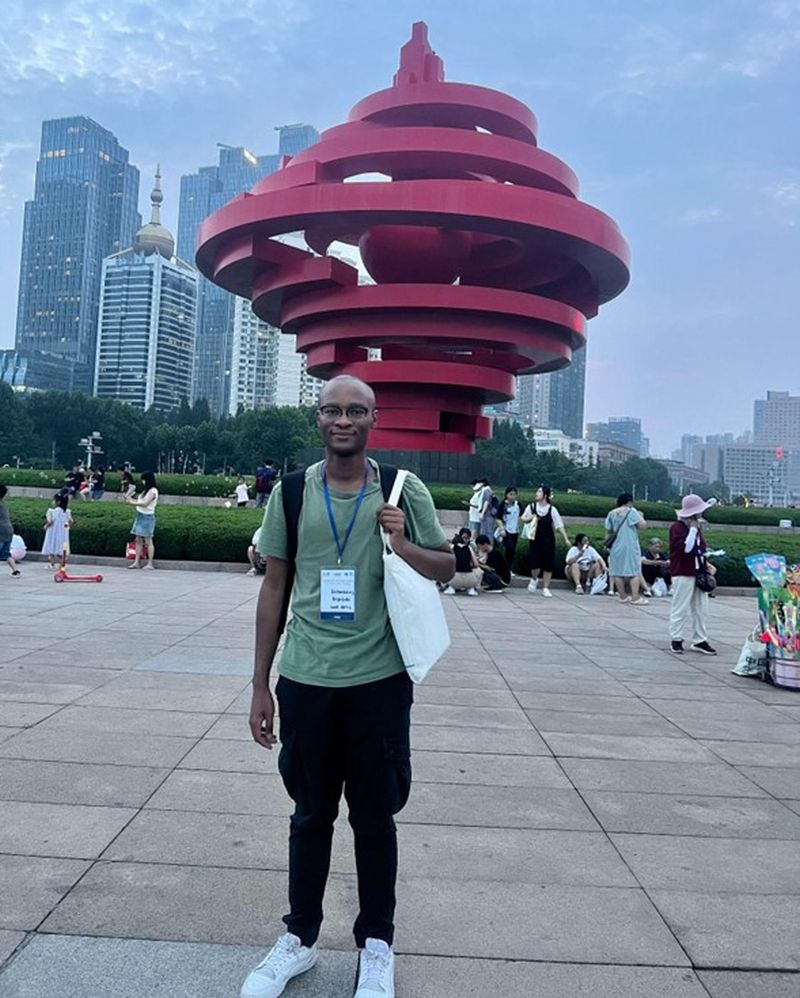Numerical modelling remains a scarce skill in South Africa, particularly in the fields of ocean modelling, air-sea coupled models and data assimilation techniques. Therefore, the need to develop capable and skilled ocean and atmospheric modellers should remain a priority. This will support the operational demands and research needs of South Africa in both marine and terrestrial environments.
As part of the BRICS PARADIGM project led by Dr Jennifer Veitch of NRF-SAEON, two researchers from South Africa were supported to participate in the two-week 12th ODC (Ocean Dynamics and Climate) training course on “Ocean Model and Data Assimilation” in Qingdao, China. The researchers are Dr Moagabo Ragoasha, a lecturer and physical oceanographer at the University of Cape Town’s Oceanography Department, and Dr Ramontsheng Rapolaki, a researcher in Agrometeorology and a numerical modeller at the Agricultural Research Council – Natural Resources and Engineering (ARC-NRE).
The training they received provided valuable insights and knowledge that will undoubtedly contribute to our ongoing efforts to strengthen numerical modelling in South Africa and within the BRICS project.
Course materials
The course provided the trainees with knowledge on both the basics and advanced topics in numerical modelling, as well as theoretical and practical aspects of data assimilation as they relate to ocean models. The trainees were not only equipped with theoretical knowledge of ocean models but were also introduced to various models such as POM and Wavewatch III, including information on where to obtain the source codes for these models, steps to compile them, and their evaluation.
The morning sessions mainly covered theoretical components, while the afternoons were dedicated to giving the trainees an opportunity to put into practice what they had learned in the morning. The course also introduced the trainees to Python programming and provided each participant with an opportunity to improve their coding skills or learn the new language for those not familiar with Python coding. Each trainee had to prepare a 10-minute presentation on their work and what they hoped to gain from the course.
To encourage and facilitate collaboration among participating trainees from various countries around the world, the trainees were assigned to groups of five, with each group having a secretary and a group leader to facilitate the assignments. Moagabo acted as the leader of her group and was awarded a certificate for this role at the closing ceremony.
Professional development
Good proposal writing and collaboration skills are important within the scientific field, and to help the trainees hone these skills, each group worked on identifying a challenge within their field and developing research grant proposals. The proposals were presented to a panel of experts on the last day of the course, and each group was provided feedback on the further development of these ideas.
Our overall experience in Qingdao has been positive; the city is friendly, and the variety of food was pleasant. The training course was concluded with an award ceremony and a buffet.
We would like to thank NRF-SAEON for its financial support and everyone who helped with the travel arrangements. Moagabo further acknowledges the financial support from the ODC for her accommodation in China. We also take this opportunity to thank the ODC for the opportunity to participate in this year’s training.
Moving forward, we will be working with key stakeholders involved in model development in South Africa across multiple sectors (ocean, energy and agriculture), towards the development of regional earth systems science.
A key lesson from this course is that sometimes all you need is a simple solution that addresses the problem you are trying to solve, and sometimes addressing the unresolved physical processes in the model is more efficient than increasing computational resources.

